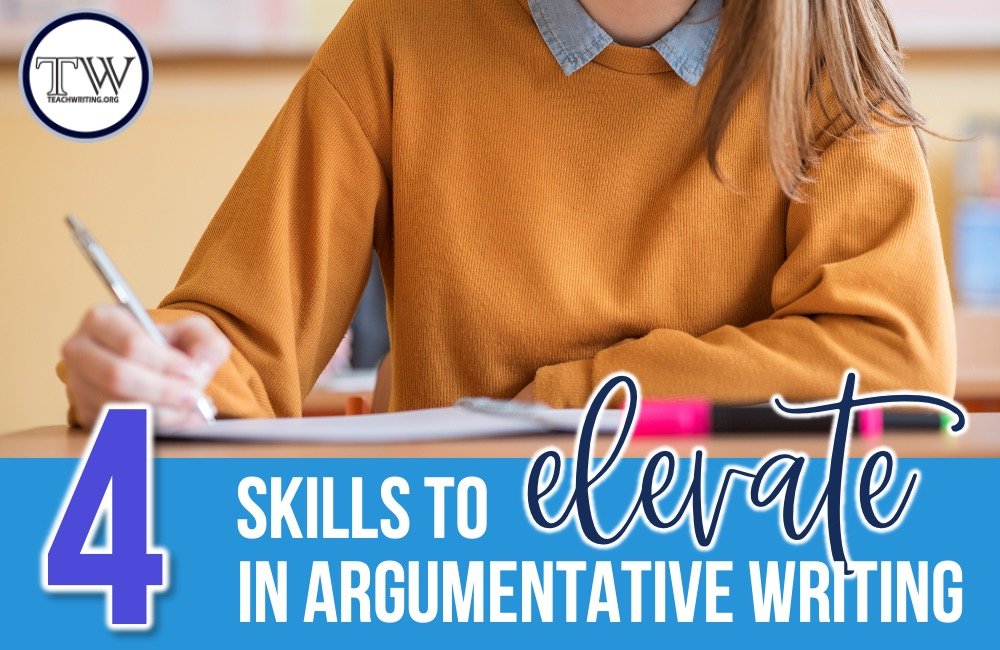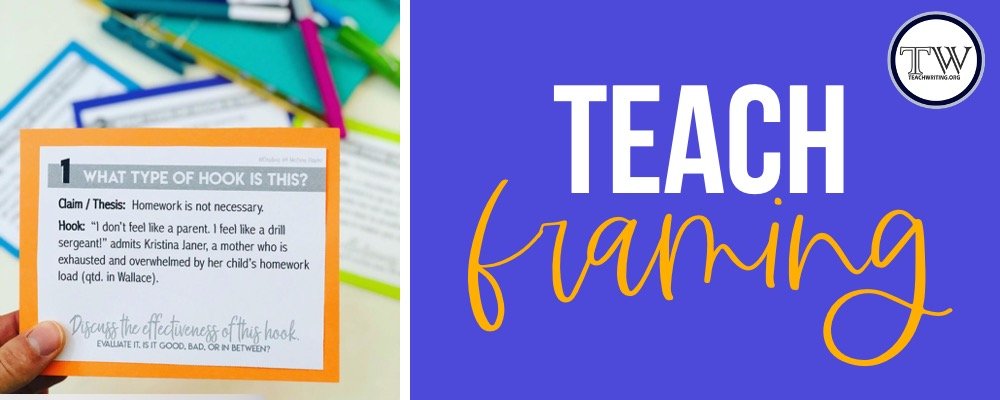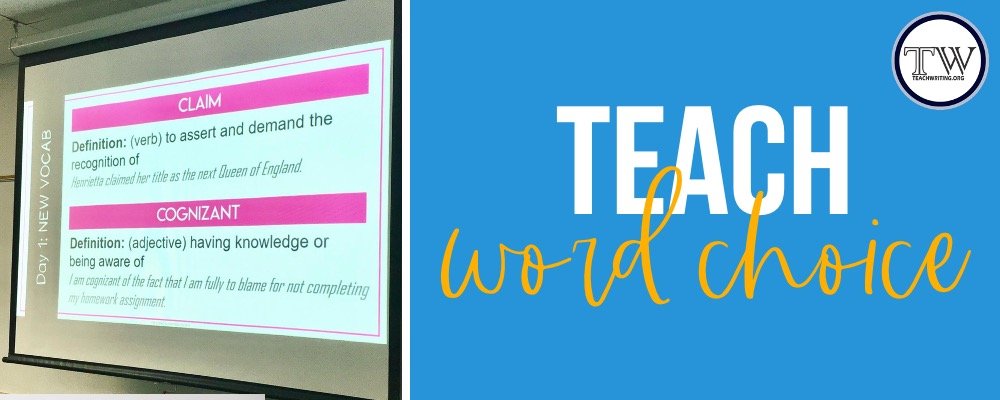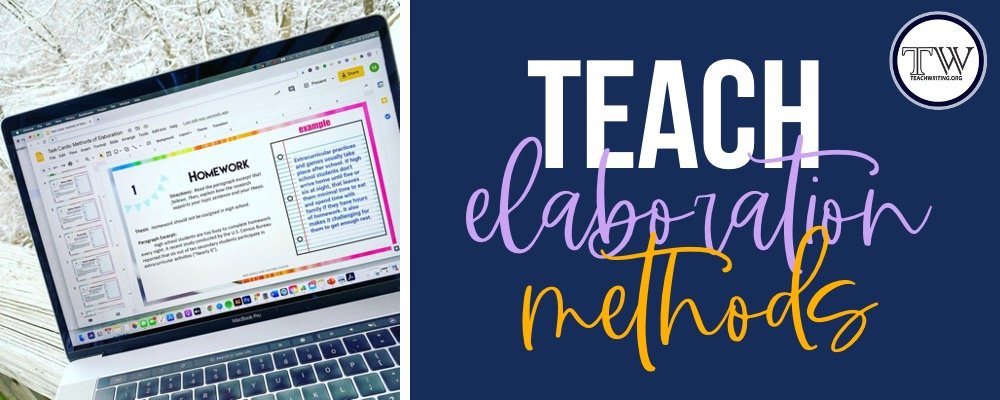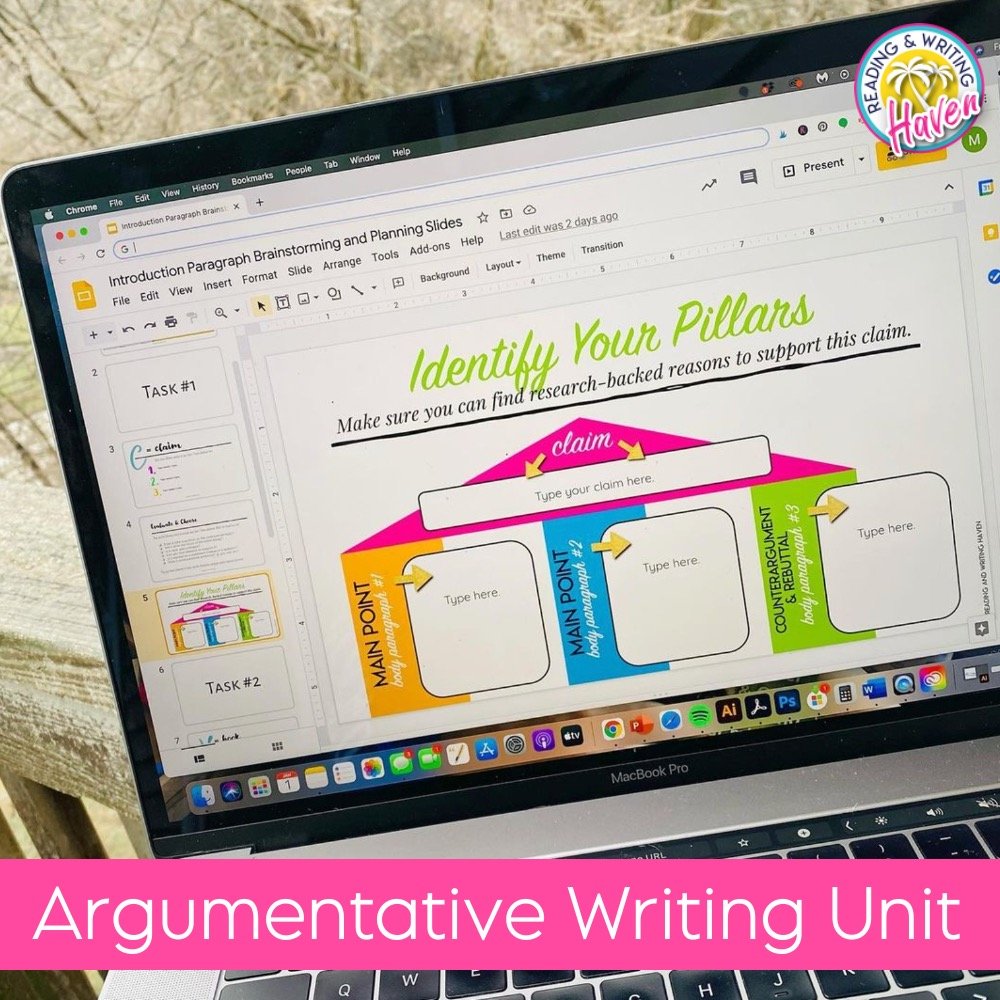4 Lessons to Elevate Students' Argumentative Writing Skills
Getting ready for an argumentative writing unit? It’s the linchpin of upper-grade writing standards. If students can debate intelligently, persuasively, and respectfully, they will go far. As English teachers, we often talk about areas for growth with student writing, but many times, those conversations focus on struggling writers. Today, let’s look at four skills that you could consider enrichment opportunities (although they would engage tweens and teens of any readiness level).
Your students may feel confident with the basics, but how can we elevate those argumentative writing skills to really empower our young authors?
FRAMING
Reading weak attention getters is hard. “Hello, my name is…and I’m going to tell you about…” Or this one, “Did you know that…?” In conclusions, you might find something similar. For instance, “Those are the reasons why…” or “I hope you enjoyed reading my essay.”
Ugh.
No more! Once I began teaching my students the art of framing, students’ drafting of introductions and conclusions improved. In short, framing means students allude to their attention getter when they are closing their essay. If they began with an anecdote or statistic, they refer back to it to make a point or provide a call to action in closing. This powerful strategy ties a clever bow around the whole essay, framing it from beginning to ending.
Interested in the whole lesson plan? Here’s an example of framing for an essay about the Internet.
Why teach framing?
Framing is a specific strategy that goes beyond summarizing. It brings the piece to life. In the future, when students prepare a business proposal, a blog post, a cover letter, or a speech for their career, framing could be the wow factor that shows a polished approach to writing…with a tasteful emotional appeal.
Introduction paragraphs need effective hooks! Here, students analyze example hooks to determine type and effectiveness.
TRANSITIONS
First. Secondly. Next. In conclusion.
Simple transitions work…to a point…in moderation…and in a handful of situations. Eventually, students outgrow basic transitions as their “go-to” options. We can help elevate students’ argumentative writing skills by broadening their understanding of a transition. Transitions can be conjunctive adverbs, dependent clauses, or even entire sentences (among other things).
Consider these examples for an essay about travel sports…
BASIC
First, the busy schedule of a travel sports player can cause unnecessary stresses on family life. (This is an example of a basic, elementary transition.)
ELEVATED
Many middle school students participate in travel sports; however, the busy schedules can cause unnecessary stresses on family life. (Here, a conjunctive adverb joins the ideas.)
Even though travel sports are a popular option for tweens, some families opt out because of the unnecessary stresses it causes on family life. (Students can use complex sentences that begin with dependent clauses to vary their transitional use.)
In addition to unnecessary stress for family life, travel sports also place a large financial burden on parents. (I LOVE teaching students how to use an entire sentence to transition between paragraphs. These sentences can either be topic sentences that begin a body paragraph or closing sentences at the end of a body paragraph.)
Why teach TRANSITIONS?
Transitions help with sentence fluency as well as organization of ideas. Learning specific types of transitions helps them to use words and phrases to strategically link the major ideas and sections of their writing. Transitions create cohesion and clarify relationships for readers. The right transition used at the right time will drive a rebuttal home.
These writing conference tools contain elaboration stems and a transition list to scaffold the process for students.
WORD CHOICE
When students are ready to revise, word choice lessons can make a big difference! I like to cover formal vocabulary options throughout the research unit so that students have an opportunity to use the new words they are learning in writing.
Each day, students learn two formal word options that can replace common cliches in writing. Instead of using the cliche “read between the lines,” for example, students learn to substitute more concise, formal words like “infer” or “deduce.”
As students build their bank of formal vocabulary, they can help identify good alternatives, and you can create a class word wall to inspire all writers.
Why teach WORD CHOICE?
If we look at the Common Core (or your specific state standards), there is definitely a focus on word choice. Students need to be able to use precise language that is domain-specific and that is appropriate for the complexity of the topic.
Have you ever sat down to write about something you feel passionately about, but lacked the right words to accurately convey how you feel? I have. It’s frustrating! That’s why word choice matters. For formal writing, students need a vocabulary foundation that is objective and knowledgable. Where appropriate, we need to provide opportunities for students to wield their word choice to convey details through sensory language.
Formal writing word choice mini lessons equip students with vocabulary they need for academic writing. Cliche away!
ELABORATION
“A grumpy spirit cannot dwell long in a grateful heart.” This quote means that you can’t be grumpy if you are grateful. And grateful means thankful. So we should be thankful if we don’t want to be grumpy.
Do you recognize this type of paraphrase elaboration that lacks original thinking? Often, I’ve suggested students answer “why?” after citing a quote. Why does a person with a grateful heart have a hard time being grumpy?
But. The “drill down to the bottom of the why” approach doesn’t necessarily work for all students. So. Another option to help elevate argumentative writing skills is explicitly teaching elaboration strategies.
For example, do your students know they can provide a hypothetical situation related to the fact from research as a form of elaboration?
Here’s what that might look like:
Mandating school uniforms is a violation of students’ right to express their individuality. In a recent poll, nine out of ten teenagers confirmed they enjoy purchasing clothing that represents their interests, personalities and beliefs (Laymen). If all students were required to wear uniforms, their opportunities for expressing themselves visually would be severely limited.
Why teach ELABORATION STRATEGIES?
Imagine telling students, “You need to study more.” What might your students do to study more? Stare at notes? Sleep on the notes? Have the book open while texting and listening to Spotify? If we want students to study more…better…, we have to specifically show them how to study.
Similarly, it’s one thing to say “you need more elaboration,” but it’s completely another to show students exactly what that might look like. To practice writing some examples for common topics together as a class. To think aloud and write together. That’s where the magic happens! It’s where students gain the confidence and skills they need to apply elevated writing skills independently.
The next time you gear up for a big writing unit, consider whether any of your students might be ready for some elevated writing lessons. Who’s ready to amp up their transitions, get formal with word choice, drive home some articulate elaboration, or frame their masterpiece?
When we step outside the box of the traditional writing lessons our students most likely experience every year, we challenge them to try new things. We embolden them as young authors. And we engage them with something fresh. That kind of growth is worth celebrating!
SPOTLIGHT RESOURCE
Need a time-saving resource for teaching argumentative writing? This argumentative writing unit comes with key lessons and enrichment opportunities for middle and high school classes! Use the suggested standards-based progression, or use the resources as they work best for your situation.
ABOUT THE AUTHOR
Melissa is the author of Reading and Writing Haven and a collaborative blogger on Teachwriting.org.
A middle and high school English teacher for over a decade now turned instructional coach, Melissa is an avid reader and writer, and she loves sharing ideas and collaborating with fellow educators. Melissa use her degrees in English, Curriculum & Instruction, and Reading as well as her Reading Specialist certification to ponder today’s educational issues while developing resources to help teachers, students, and parents make learning more relevant, meaningful, and engaging.
Visit Melissa on Instagram, Facebook, or Twitter for English teacher camaraderie and practical, engaging teaching ideas.

